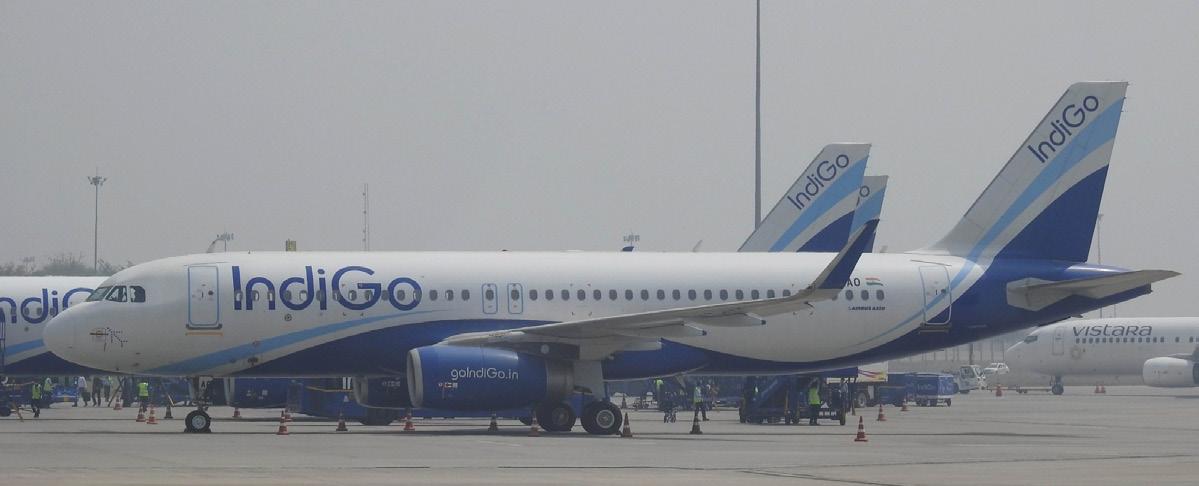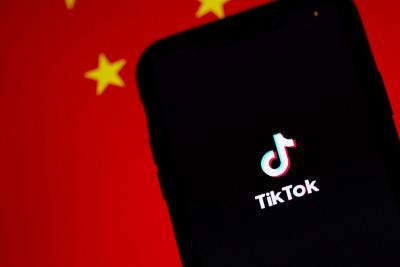
4 minute read
Delhi HC grants six weeks to RBI to respond to PIL on Uniform Banking Code
New Delhi, March 21 (IANS) The Delhi High Court on Monday granted six weeks' time to the Reserve Bank of India (RBI) for filing a response in a plea seeking directions to implement Uniform Banking Code.
Filed as a Public Interest Litigation (PIL) by Advocate and BJP leader Ashwini Kumar Upadhyay, the plea brings up the need for a Uniform Banking Code for foreign exchange transfers to regulate benami transactions and the creation of black money.
Advertisement
A division bench of Chief Justice Satish Chandra Sharma and Justice Subramonium Prasad granted time to RBI for filing a response.
In the previous hearing, the bench had given notice to RBI and directed that the entire set of documents be given to its standing counsel while taking into account the significance of the matter.
Additional Solicitor General Chetan Sharma appearing for Centre submitted that the plea raised a serious issue that required detailed examination.
The plea stated that the "immigration rules for Visa are same whether a foreigner comes in Business Class or Economy Class, uses Air India or British Airways and comes from USA or Uganda. Likewise, deposit details in Indian banks, including foreign bank branches for Foreign Exchange Transaction must be in the same format whether it
At 55.9%, IndiGo led the market share in Feb; airlines received 359 complaints
is export payment in a current account or salary, in a savings account or donation, in a charity's current account or service charges payable in YouTuber's accounts."
"Foreign Inward Remittance Certificate (FIRC) must be issued and all international and Indian banks must send the link through SMS to get FIRC automatically in case the foreign exchange is being deposited in the account as converted INR," it stated.
"Moreover, only a person or company should be permitted to send Indian rupees from one bank account to another bank account inside the territory of India through RTGS, NEFT, and IMPS and international banks should not be allowed to use these domestic banking transactions tools," the plea further said.
Chinese app TikTok still has troves of personal data of Indians: Report
purposes, the report said, quoting the TikTok employee.
The Chinese short video-making app sacked its entire India staff -about 40 employees - in February.
The ByteDance-owned platform reportedly told its employees they would receive up to nine months of severance package. However, most of the staff will only get three-month severance.
New Delhi, March 20 (IANS) While IndiGo flew ahead of the other airlines in February with a 55.9 percent share in the domestic aviation market, Air India and Vistara secured a second and third slot with a market share of 8.9 percent and 8.7 percent, respectively.
In February 2023, a total of 359 passenger-related complaints were received by the scheduled domestic airlines. The number of complaints per 10,000 passengers carried for the month of February has been around 0.3 percent.
As per the latest data issued for February by aviation regulator DGCA, IndiGo carried 67.42 lakh passengers during the month, followed by Air India (10.76 lahks) and Vistara (10.53 lakh). Similarly, GoAir with 9.63 lakh air passengers had a market share of 8 percent in February, while SpiceJet carried 8.58 lakh passengers with a 7.1 percent market share in the month under review.
airlines in February stood at 0.25 percent. The main reasons for cancellation have been identified as weather, technical, or operational issues.
The DGCA data said that the maximum number of complaints in February was received by Alliance Air (4.1/10,000 passengers), followed by Flybig (1.6/10,000 passengers), Air India (1.4/10,000 passengers), and SpiceJet (0.6/10,000 passengers).
The major reasons for complaints were flight problems (28.4 percent), baggage (26.2 percent), and refunds (12 percent).
New Delhi, March 22 (IANS)
Facing a nationwide ban in the US, Chinese short-form video making platform TikTok still have access to "troves of personal data of Indian citizens" who once used the app before it was banned in June 2020 by the Indian government over national security concerns along with several other Chinese apps.

According to a report in Forbes, the data of Indian users "remain widely accessible to employees at the company and its Beijingbased parent ByteDance".
Before the ban, TikTok had about 150 million monthly active users in the country.
"I don't think Indians are aware of how much of their data is exposed to China right now, even with the ban in place," a current TikTok employee told Forbes.
Almost anyone at the companies with basic access to their tools can retrieve and analyse granular data about past TikTok users in India, "including everyone from prominent public figures to the average person".
ByteDance has more than 110,000 employees around the world, including in China, the US and Russia.
In a statement, a TikTok spokesperson said they "have steadfastly complied, and continue to remain in full compliance, with the government of India order since it was implemented".
"All user data is subject to our robust internal policy controls surrounding access, retention, and deletion," the company spokesperson was quoted as saying.
This powerful demographic data, especially on TikTok's unmatched Gen Z userbase, could also be highly valuable for commercial
In a statement to IANS, a company spokesperson had said that "we have taken the decision to close our India remote sales support hub, which was put in place at the end of 2020 to provide support to our global and regional sales teams".
"We greatly appreciate these employees and their impact on our company, and will ensure they are supported at this difficult time," the TikTok spokesperson added.
In June 2020, the government banned TikTok along with 59 other Chinese apps citing security concerns.
Since then, the country has banned over 300 Chinese apps, including WeChat, Shareit, Helo, Likee, UC News, Bigo Live, UC Browser and many more.
The Centre in February blocked over 230 apps, including 138 betting and about 94 loan apps, which were traced to Chinese links.
As per the DGCA data released on Monday, the overall cancellation rate of scheduled domestic
Passengers carried by domestic airlines during January-February stood at 2.46 crore as against 1.41 crore during the corresponding period of the previous year, thereby marking an annual growth of 74.50 percent, and monthly growth of 56.82 per cent. As per the data released by the aviation regulator, nearly 1.21 crore passengers were carried by domestic airlines in February as against 76.96 lahks during the same period last year.









